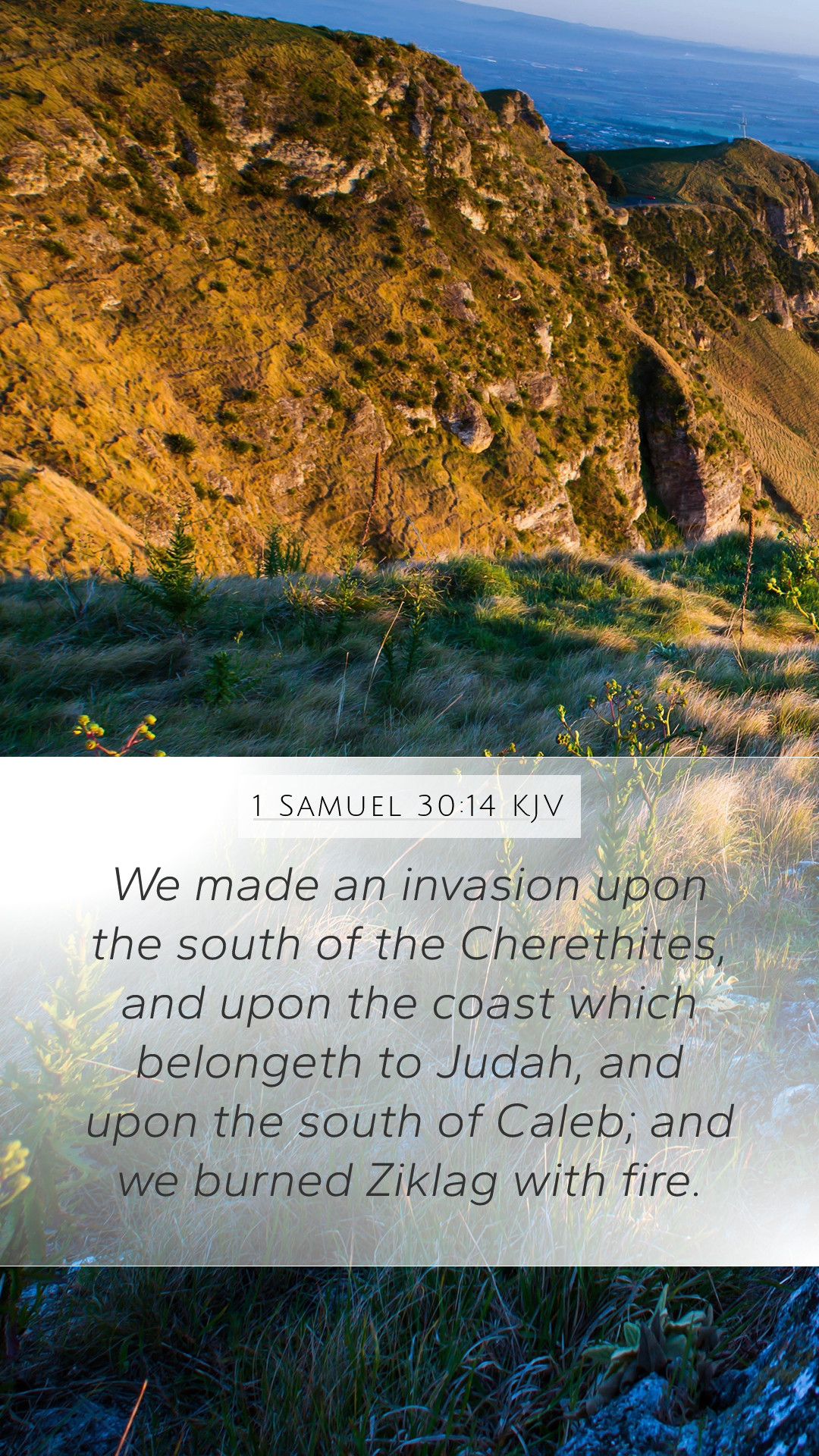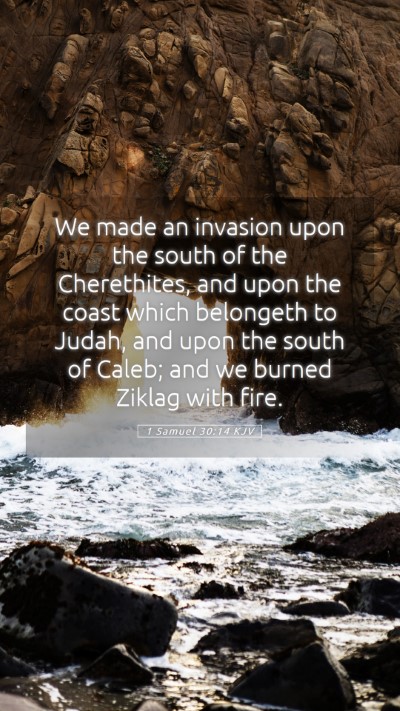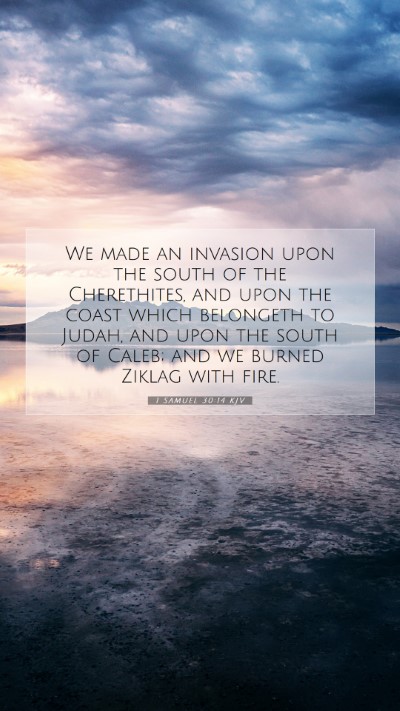Understanding 1 Samuel 30:14
In this passage, David’s encounter with the Amalekites serves as a profound lesson in resilience and faith in God. The verse reads:
"We made an invasion upon the south of the Cherethites, and upon the coast which belongeth to Judah, and upon the south of Caleb; and we burned Ziklag with fire." (1 Samuel 30:14)
Bible Verse Meanings and Interpretations
This statement delivers immense insight into the circumstances surrounding David during a time of personal crisis. The focus on David’s leadership and the ways in which God’s providence unfolds in dire situations reveals key themes important for both historical and practical applications in Christian life.
Contextual Analysis
The text must be examined within its historical context. David, having faced significant challenges and challenges to his kingship, is here confronted with the loss of his city, Ziklag, at the hands of the Amalekites.
- David's Leadership: David's ability to rally his men after suffering such a loss demonstrates his resilience and strength as a leader.
- Divine Providence: The verse underscores the idea of God’s watchful eye upon His chosen, even amidst devastating circumstances.
- Importance of Community: Highlighting the collective experience of distress amongst David's followers reveals the impact of shared burdens.
Biblical Commentary Insights
According to Matthew Henry, this verse exemplifies the cruelty of the Amalekites and signifies a failure of divine protection. Yet, it simultaneously encapsulates a pivotal moment for David, marking a turning point of restoration amidst loss.
Albert Barnes notes that the specific mention of the Cherethites and the coasts of Judah emphasizes geographical significance, hinting at political undertones of the region's instability and border conflicts.
Adam Clarke states that the destruction of Ziklag carries symbolic weight, representing the trials a leader must face and the moral responsibilities tied to them. Ziklag acts as a reminder of the fragility captured within the pursuit of power and security.
Faith and Resilience
This passage invites reflection on the notions of faith and resilience. It encourages believers to understand that trials are often precursors to divine intervention and that setbacks may position individuals for future victories. Christianity teaches that “weeping may endure for a night, but joy comes in the morning” (Psalm 30:5).
Application of 1 Samuel 30:14 in Daily Life
In applying this verse to modern life, individuals can strive to interpret how David’s experiences relate to their circumstances:
- Overcoming Setbacks: Just as David rallied back after loss, individuals can find strength to rebuild after personal failures or tragedies.
- Leadership in Difficult Times: The passage teaches the importance of maintaining hope and leading others through adversity.
- Faith in God: Trusting God's plan is paramount, despite the chaos surrounding one’s life.
Cross References
Related passages that enhance understanding include:
- Exodus 17:14 - God's command concerning the Amalekites.
- Psalm 30:5 - A reminder of the fleeting nature of sorrow.
- 2 Samuel 1:1 - The transition of David's journey as he mourns Saul and Jonathan.
Conclusion
In summarizing the insight from 1 Samuel 30:14, it is essential to view this scripture not only as a historical account but also as a rich source of theological teachings. Its implications on leadership, faith, and community continue to resonate with contemporary issues faced by individuals and Bible study groups.
Delving into such studies can provide profound bible study insights and bible verse commentary that guide believers in interpreting the meaning of Bible verses and applying them to daily life.


